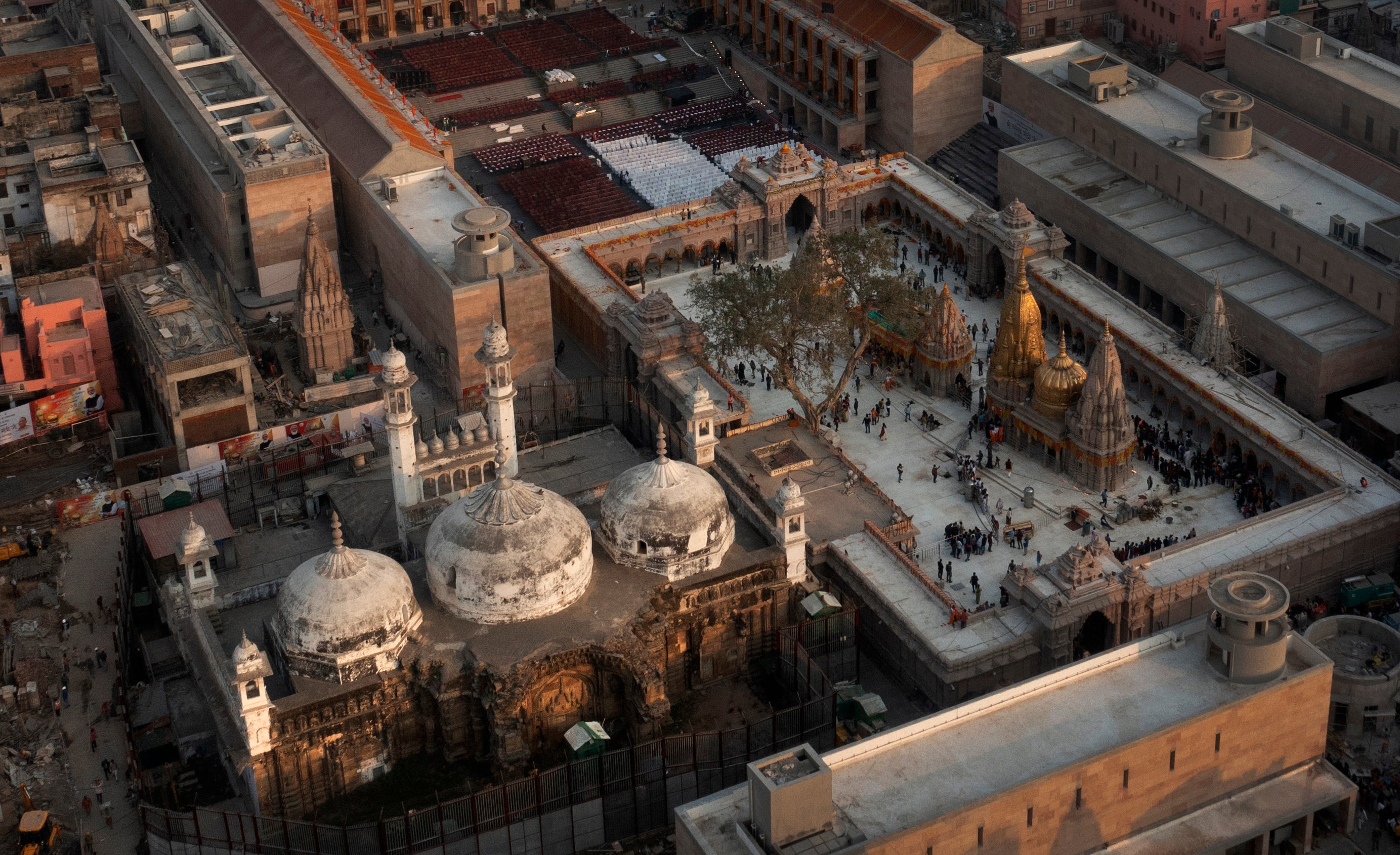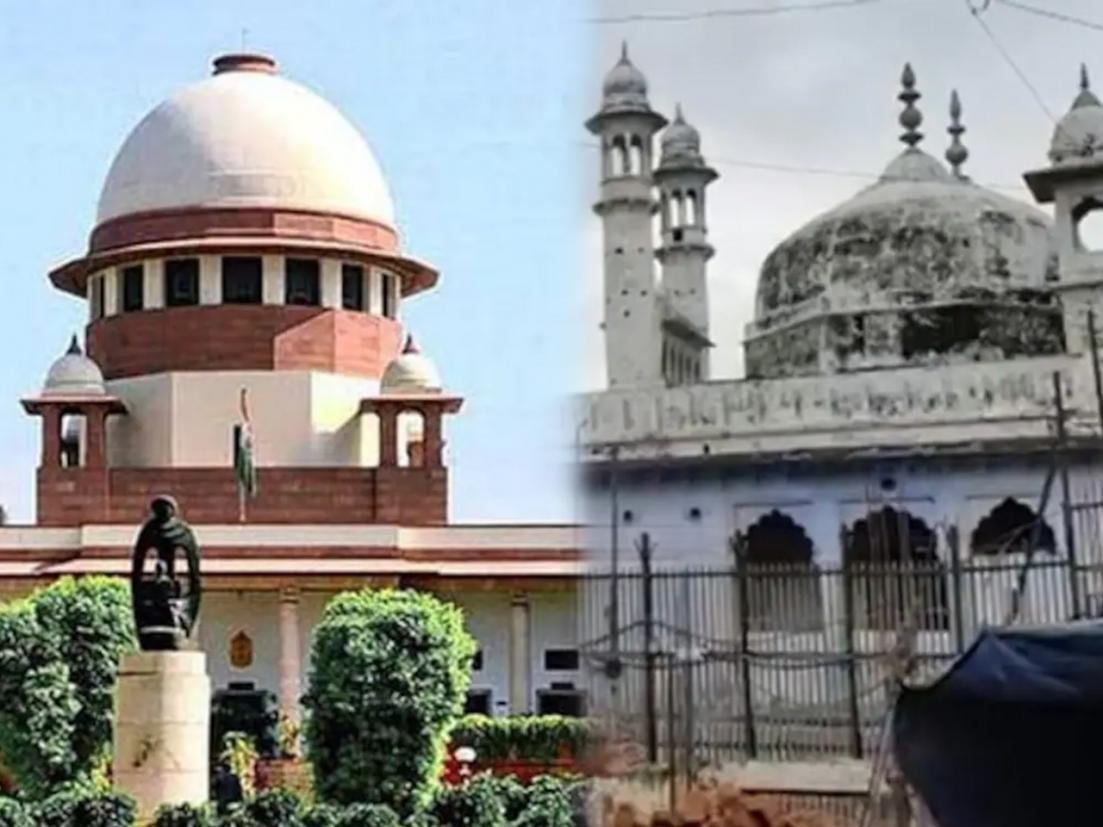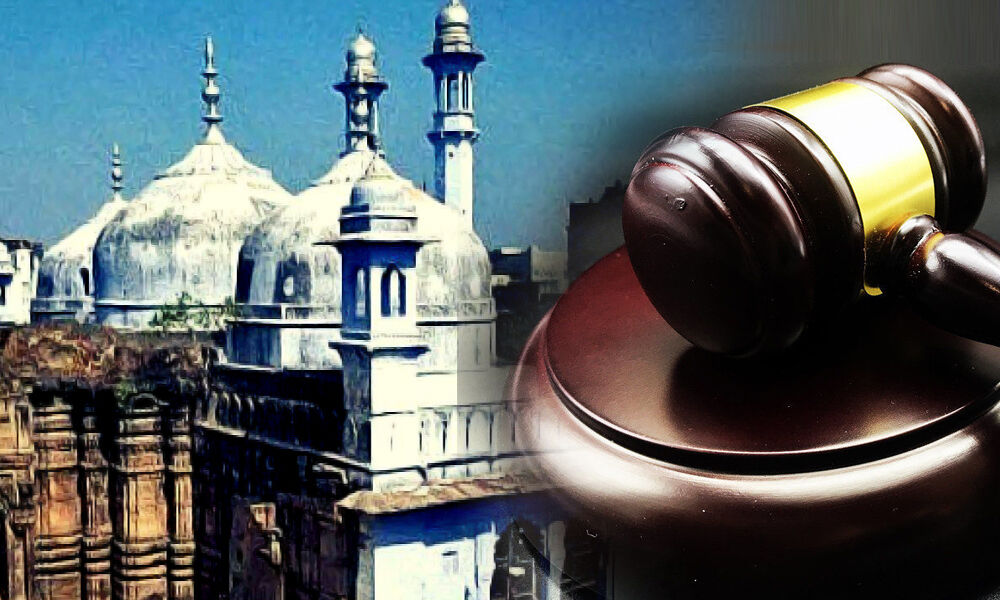In a significant development, the Allahabad High Court has granted permission for the survey of the Gyanvapi mosque. This decision came after the court responded to a plea from the mosque committee, which contested the Varanasi district court’s directive to the Archaeological Survey of India (ASI) to carry out a thorough examination. The survey aims to ascertain whether the Gyanvapi masjid was constructed upon the remains of an ancient temple, marking a pivotal step in the ongoing legal proceedings surrounding the historical site.

Source: The Independent
On July 21, the Archaeological Survey of India (ASI) received a directive from a Varanasi court to undertake a comprehensive survey, including excavations if required, with the objective of establishing whether the Gyanvapi mosque stands on the site of a former temple. This investigation gains significance as the mosque lies adjacent to the revered Kashi Vishwanath temple in Varanasi, prompting the need for a thorough examination to determine its historical origins.
#BREAKING The Anjuman Intezamia Masjid Committee has moved the #SupremeCourt challenging the Allahabad High Court order which permitted for the ASI survey to be carried out in the premises of #GyanvapiMosque .#SupremeCourtofIndia #GyanvapiCase #SupremeCourt pic.twitter.com/s1hrF1ehKS
— Live Law (@LiveLawIndia) August 3, 2023
The Indian government, through its Solicitor General Tushar Mehta, has provided a guarantee to the Supreme Court that the survey to be conducted will not result in any changes to the structure. This survey will focus solely on measurement, photography, and radar studies. The Gyanvapi mosque has recently gained attention due to a significant development where a group of women approached a lower court in Varanasi seeking permission to worship a Hindu deity present within the mosque’s complex on all days. Their claim is based on the belief that a temple existed at the site in the past. The matter has raised interest and concern, prompting legal proceedings and discussions in relation to the historical and religious significance of the mosque’s premises.

Source: Lokmat
In 2022, following the petition’s submission, the court issued an order for a video survey of the complex. This survey revealed a structure that the petitioners contended to be a ‘shivling’, a sacred symbol in Hinduism. On the other hand, the mosque management committee refuted this claim, stating that the structure was, in fact, a part of the ‘wazukhana’, an area designated for ritual hand and foot washing before prayer. The discovery of this disputed structure added to the complexity of the case, as both parties presented contrasting interpretations of its significance within the Gyanvapi mosque’s premises.
In recognition of the case’s sensitivity, the Supreme Court took measures to preserve the alleged ‘shivaling’ area by ordering its sealing. Subsequently, in September 2022, the Varanasi district Court dismissed a challenge filed by the mosque committee. The committee had contended that the women’s plea to worship Hindu deities within the complex premises was not legally sustainable. Despite the dismissal, the issue remains subject to further legal scrutiny, given its significance and the contrasting viewpoints of the involved parties.

Source: Sabrang India
The Gyanvapi mosque, situated in the constituency of the Prime Minister, has garnered attention due to its historical context. It is among several mosques that some individuals believe were constructed by demolishing Hindu temples during the Mughal era. The issue of the mosque’s existence was raised by the BJP in the 1980s and 1990s, sparking debates and discussions surrounding its origin and historical significance. The location of the mosque within the Prime Minister’s constituency adds further significance to the ongoing discourse about its past and its implications on the present.
Also Read:
Gyanvapi Case: Setback For Hindu Petitioners As SC Stays Varanasi Court Order





















































































